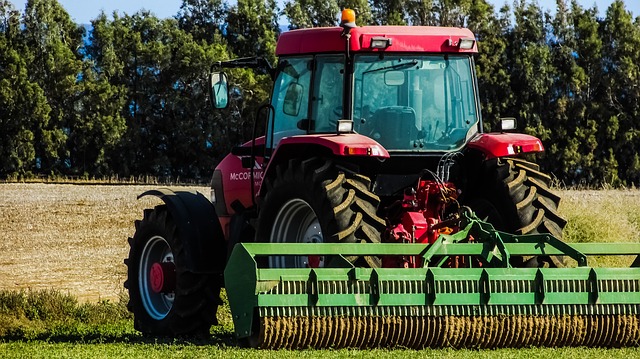
Avoiding Farm Machinery Hazards
Even though farm machinery manufacturers try to ensure that their products are safe by equipping them with safety guards, agricultural work presents many hazards. Many times, workers suffer injuries because of human error from taking a shortcut, ignoring warning signs, not paying attention or not following safety rules.
Here are some of the most common farm machinery hazards, as well as several safety recommendations to reduce your risk of injury:
Shear Points and Cutting Points
- Shear points occur when the edges of two objects move close together and can cut soft material (example: auger).
- Cutting points occur when an object moves forcefully and is able to cut (example: sickle blade).
To avoid injuries, remain alert while operating machines with shear and cutting points. Also, advise others to watch out because some cutting machinery can throw objects while in use.
Pinch Points
- Pinch points are created when two rotating objects move closely together, one moving in a circle.
- Hands and feet can get caught in pinch points, or other body parts can get pulled into pinch points when loose clothing becomes entangled in the machine.
To avoid injuries, wear tight-fitting clothing and never reach over or work near rotating parts. Also, identify places where pinch points can occur and avoid these areas.
Wrap Points
- When exposed machine parts rotate, they create wrap points. Loose clothing can get caught in the moving parts, and consequently pull workers into the machine.
To avoid injuries, shield potential wrap points before beginning your work. If wrap points cannot be shielded, paint them a bright color to remind yourself that they are there.
Crush Points
- Crush points occur when objects move toward one another, or one object moves toward a stationary object. Workers can be crushed in between.
Block equipment securely to avoid fatal crushing injuries.
Free-wheeling Parts
- Some equipment with moving parts continues to spin after being shut off.
To avoid injuries, wait until the machinery has completely stopped before touching it. This can take several minutes.
Hydraulic Systems
- When servicing, adjusting or replacing parts on machines with hydraulic systems, workers can face high-pressure blasts of hydraulic oil. This can cause injury and/or burns to the skin.
To avoid injuries, do not inspect hydraulic hoses with your hands because the hydraulic fluids can puncture the skin.
Take time to become familiar with the potential hazards of the machinery you work with and remember to always put safety first!

Comments
Not found any comments yet.